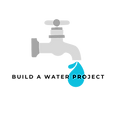Solutions to the Water Crisis
- Asiya Siddiqui
- Mar 10
- 3 min read
March 5, 2024
By: Sama Ahmed
What is the issue?
The water crisis goes beyond ‘lack of water’. It is a consequence of several factors, including governmental mismanagement and climate change; droughts affect the water supply for agriculture, resulting in increased costs and reduced revenues. Moreover, with less water available, chemicals and fertilizers become more concentrated in the limited water supply, making it unfit for drinking without proper treatment. Also, floodwater can spread waterborne diseases by carrying pathogens from flooded areas into clean water sources. This can lead to outbreaks of illnesses such as cholera and typhoid. Droughts and floods are natural disasters affected by human-caused climate change. Furthermore, wars and conflicts play a huge role in water scarcity, although controlling and limiting drinking water is a war crime.

What Should be Done?
There are various methods to tackle the water crisis issue, and it starts with the authority powers. For starters, countries come together every year at the UN to pledge for a better world, creating plans to enhance water availability, quality, and accessibility for all. However, it takes actual action to reduce water scarcity. 100 fossil fuel companies are responsible for 71% of global industrial GHG emissions. [2] Stricter rules around such companies would majorly benefit the environment and reduce the fatal effects of climate change. Moreover, the ICJ should focus on holding states accountable to signed rules and documents.
Access to water is a basic human right and denying this constitutes a war crime–yet it is a constant issue in third world countries. Targeting water treatment plants in Iraq, destruction of water infrastructure in Yemen and Syria, as well as the control over water resources in Gaza, Palestine are all examples. [3][4][5] International organizations could invest in building and maintaining water infrastructure, including water treatment plants, distribution systems, and storage facilities. This infrastructure is critical for ensuring access to clean and safe drinking water for all.
What Can You Do?
Your voice is your weapon. Advocate against companies that continue to harm water sources. Advocate against water oppression and emphasize that access to water is a fundamental human right that must be upheld. Additionally, you can support the construction of wells and other water infrastructure in developing nations through donations and volunteering.
For a guilt-free lifestyle, make mindful choices. Always opt for water saving appliances, and only run full loads of laundry. Using a dishwasher helps reduce water waste and so does a dual flush system. Fix any leaky pipes and turn off water while brushing or shaving to reduce unnecessary loss of water.
On a positive note, there are plenty of nonprofits aiming to build water infrastructure in developing countries in need, including Build a Water Project, which is currently working on building wells in Bangladesh. By working together, we can ensure access to clean water for all, safeguarding this essential resource for future generations. Remember, every small step counts towards creating a positive impact in addressing the water crisis.
Support our cause!
References:
1 in 3 people globally do not have access to safe drinking water – UNICEF, the World Health Organization. Available at: https://www.who.int/news/item/18-06-2019-1-in-3-people-globally-do-not-have-access-to-safe-drinking-water-unicef-who
(No date) The Carbon Majors Database. Available at: https://cdn.cdp.net/cdp-production/cms/reports/documents/000/002/327/original/Carbon-Majors-Report-2017.pdf
MACQUEEN, G., NAGY, T., BARBARA, J. S., & RAICHLE, C. (2004). ‘Iraq Water Treatment Vulnerabilities’: a Challenge to Public Health Ethics. Medicine, Conflict and Survival, 20(2), 109–119. https://www.jstor.org/stable/27017569
UNICEF, U. Access to water continues to be jeopardized for millions of children in war-torn Yemen, UNICEF. Available at: https://www.unicef.org/mena/press-releases/access-water-continues-be-jeopardized-millions-children-war-torn-yemen
2023, 20 November (2023) Hostilities in the Gaza Strip and Israel: Flash update #45 [en/ar/he], Front page.Available at:https://www.unocha.org/publications/report/occupied-palestinian-territory/hostilities-gaza-strip-and-israel-flash-update-45 (Accessed: 25 February 2024).
.png)
コメント